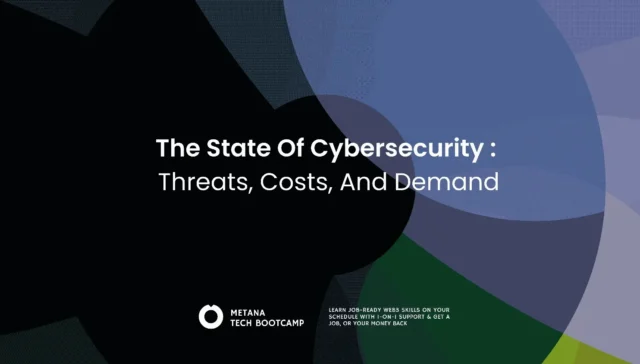Decentralization is the cornerstone of Web3, aiming to empower users and reduce reliance on centralized control. However, a common pitfall in Web3 development contradicts this very principle: Overpowered Admins. Granting excessive privileges to a single entity, even with good intentions, can pose a security threat and undermine trust in the project.
The God Mode Conundrum

Imagine a DeFi protocol with an admin account that has unrestricted control over all aspects of the system. This account can freeze funds, modify parameters, and even halt the entire protocol. While this might seem like a failsafe for unforeseen circumstances, it concentrates immense power in the hands of a single entity.
Security Risks
Admin accounts become prime targets for hackers. If compromised, an attacker could exploit these privileges to manipulate the protocol for personal gain, steal user funds, or disrupt the entire system.
Example Scenario:
- An admin account is used to manage user funds in a DeFi protocol.
- A hacker gains access to this account through a phishing attack.
- The hacker transfers all user funds to their own wallet, causing massive losses.
Centralization Concerns
An overpowered admin undermines the very notion of decentralization. Users become reliant on the benevolence of a central authority, raising questions about censorship, transparency, and the true control over their assets.
Example Scenario:
- An admin decides to freeze a user’s funds without any community consensus.
- This action raises concerns about censorship and the arbitrary use of power.
- Users lose trust in the protocol, fearing their assets could be similarly affected.
Real-World Wake-Up Calls

The Wormhole Exploit (2022)
A hacker gained access to an admin wallet on the Wormhole DeFi bridge, exploiting a vulnerability to steal over $320 million worth of cryptocurrency.
- Impact: This exploit not only resulted in significant financial losses but also damaged the reputation of the protocol, highlighting the dangers of overpowered admins.
The Founder’s Dilemma
Several projects have faced criticism for vesting too much control in their founding teams, raising concerns about the long-term sustainability and decentralization of the protocol.
- Example: A well-known DeFi project faced backlash when it was revealed that the founding team had the ability to unilaterally change key protocol parameters without community input.
Building Trust Through Shared Power
Web3 developers can promote a more balanced and secure ecosystem by implementing several key strategies.
Minimizing Admin Privileges
Grant admins only the essential functionalities necessary for emergency interventions or protocol upgrades. Avoid god-mode accounts with absolute control.
Example Code:
pragma solidity ^0.8.0;
contract LimitedAdmin {
address public admin;
bool public emergencyFlag;
constructor() {
admin = msg.sender;
emergencyFlag = false;
}
modifier onlyAdmin() {
require(msg.sender == admin, "Only admin can perform this action");
_;
}
function setEmergencyFlag(bool _flag) public onlyAdmin {
emergencyFlag = _flag;
}
function emergencyWithdraw(address _to, uint256 _amount) public onlyAdmin {
require(emergencyFlag, "Emergency flag is not set");
payable(_to).transfer(_amount);
}
// Other critical functions without admin control
}
Time-Lock Mechanisms
Implement time-lock delays for critical admin actions, allowing for community scrutiny and preventing impulsive decisions.
Example Code:
pragma solidity ^0.8.0;
contract TimelockAdmin {
address public admin;
uint256 public timelockPeriod;
mapping(bytes32 => uint256) public queuedTransactions;
constructor(uint256 _timelockPeriod) {
admin = msg.sender;
timelockPeriod = _timelockPeriod;
}
modifier onlyAdmin() {
require(msg.sender == admin, "Only admin can perform this action");
_;
}
function queueTransaction(bytes32 txHash) public onlyAdmin {
queuedTransactions[txHash] = block.timestamp + timelockPeriod;
}
function executeTransaction(bytes32 txHash) public onlyAdmin {
require(block.timestamp >= queuedTransactions[txHash], "Timelock not expired");
require(queuedTransactions[txHash] != 0, "Transaction not queued");
// Execute the transaction
delete queuedTransactions[txHash];
}
// Other critical functions with timelock
}
Decentralized Governance
Evolve towards a permissioned or permissionless governance model where the community has a say in protocol upgrades and key decisions, reducing reliance on a single admin.
Example Code:
pragma solidity ^0.8.0;
contract Governance {
struct Proposal {
uint256 id;
address proposer;
string description;
uint256 endBlock;
uint256 forVotes;
uint256 againstVotes;
bool executed;
}
uint256 public proposalCount;
mapping(uint256 => Proposal) public proposals;
mapping(uint256 => mapping(address => bool)) public votes;
function propose(string memory _description) public {
proposalCount++;
proposals[proposalCount] = Proposal({
id: proposalCount,
proposer: msg.sender,
description: _description,
endBlock: block.number + 100,
forVotes: 0,
againstVotes: 0,
executed: false
});
}
function vote(uint256 _proposalId, bool _support) public {
require(block.number <= proposals[_proposalId].endBlock, "Voting period has ended");
require(!votes[_proposalId][msg.sender], "Already voted");
votes[_proposalId][msg.sender] = true;
if (_support) {
proposals[_proposalId].forVotes++;
} else {
proposals[_proposalId].againstVotes++;
}
}
function execute(uint256 _proposalId) public {
Proposal storage proposal = proposals[_proposalId];
require(block.number > proposal.endBlock, "Voting period not ended");
require(!proposal.executed, "Proposal already executed");
if (proposal.forVotes > proposal.againstVotes) {
// Execute proposal actions
proposal.executed = true;
}
}
}
Conclusion
The issue of overpowered admins is a critical concern in Web3 development. By minimizing admin privileges, implementing time-lock mechanisms, and embracing decentralized governance, developers can create more secure and trustworthy systems. These steps not only enhance the security of protocols but also uphold the foundational principles of decentralization, ensuring that users truly have control over their assets.
Creating a balanced and fair ecosystem requires careful planning and the willingness to distribute power among the community. By addressing the god mode conundrum, Web3 developers can foster a more resilient and decentralized future.
FAQs
How can overpowered admins affect Web3 security?
- Overpowered admins can lead to centralization, making the system vulnerable to hacks, mismanagement, and loss of trust.
What are some methods to mitigate overpowered admin privileges in Web3?
- Implement multi-signature wallets, role-based access controls, and regular audits to limit admin powers and enhance security.
Why is decentralization important in Web3 projects?
- Decentralization reduces single points of failure, enhances transparency, and aligns with the core principles of blockchain technology.
What is a multi-signature wallet?
- A multi-signature wallet requires multiple private keys to authorize transactions, adding an extra layer of security by distributing control.
How can smart contracts help in managing admin privileges?
- Smart contracts can enforce rules and automate processes, ensuring that admin actions are transparent, auditable, and adhere to predefined protocols.
What are Web3 applications?
- Web3 applications are decentralized apps (dApps) that run on blockchain technology, enabling peer-to-peer interactions without intermediaries.
What role does governance play in Web3 security?
- Governance involves setting rules and decision-making processes that ensure fair and secure management of the Web3 ecosystem.
How can regular audits improve Web3 security?
- Regular audits help identify and fix security vulnerabilities, ensuring that admin privileges and overall system security are maintained.
What is role-based access control (RBAC)?
- RBAC is a security method that assigns permissions based on roles within an organization, limiting access to sensitive functions and data.
What are the benefits of using decentralized governance models?
- Decentralized governance models distribute decision-making power, increasing transparency, reducing risks of corruption, and aligning with blockchain’s decentralized nature.







